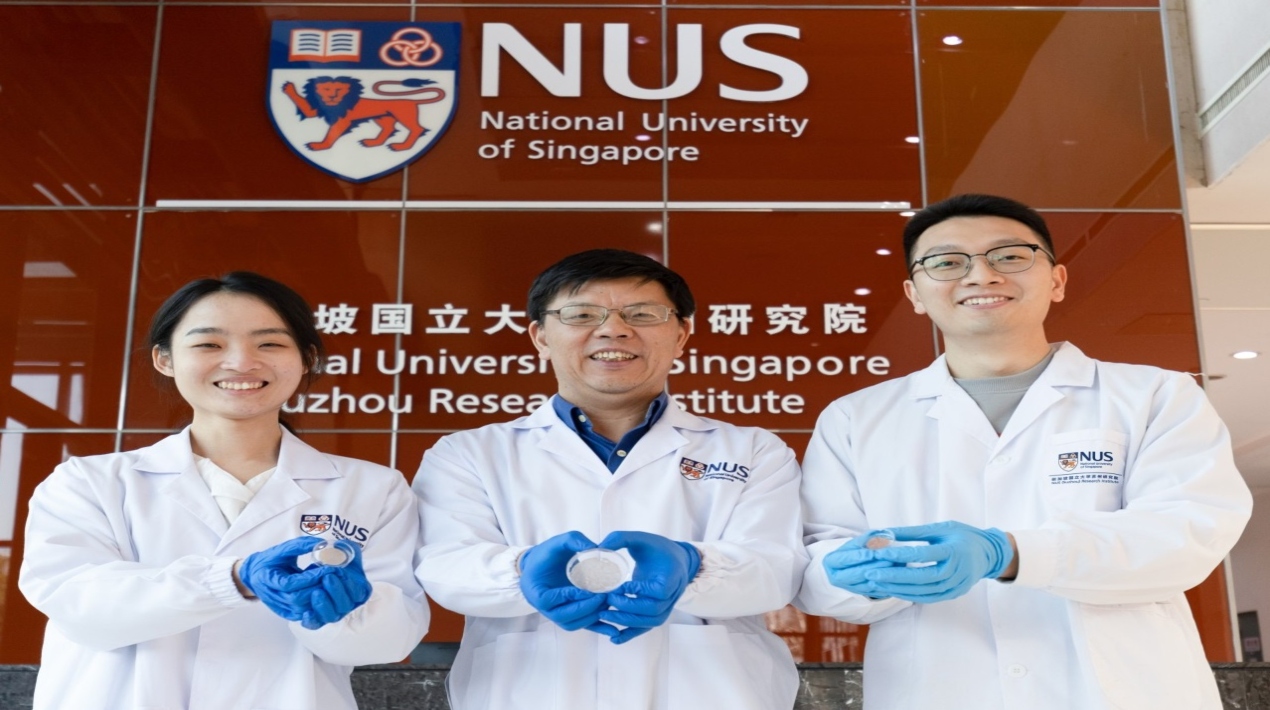
Lab-grown meat, also called cultured meat or cell-based meat, is becoming a more popular source of protein as people become more aware of how their food affects the world and their morals. With this, scientists from the National University of Singapore (NUS) have developed an edible cell culture scaffold made from plant proteins using 3D-printing technology, a breakthrough that could lead to more affordable and eco-friendly production of lab-grown meat.
Cells from an animal’s skeletal muscle are used to make cultured meat. These cells are grown on three-dimensional structures called scaffolds. The scaffolds support the cells as they spread and grow into tissues. Cell growth scaffolds, on the other hand, are usually made of synthetic or animal-based materials that are either too expensive or can’t be eaten.
The team, led by Professor Huang Dejian, Deputy Head of the NUS Department of Food Science and Technology, sought to find a viable alternative for scaffold production. They turned to plant proteins as they are biodegradable, compatible with animal cells, and meet standard food requirements, making them suitable for growing meat.
Prolamins are a group of plant-storage proteins that aren’t very good for you because of the way their amino acids are made up. In fact, prolamins are made as waste by the businesses that make starch and vegetable oil. Still, Prof Huang and his team took advantage of these properties of prolamins to come up with a cheap and long-lasting resource for growing meat.
The team utilised zeins, hordeins and secalins, also known as prolamins from corn, barley, and rye flour, as pigments for electrohydrodynamic printing, a precise 3D printing technique commonly used in biomedical applications.
After testing the prolamin structures for meat cultivation by immersing them in a cell culture medium for seven days, they remained structurally stable under a scanning electron microscope, although they had several cavities on their surfaces that the researchers believe were caused by enzymes secreted by the cultured cells rather than structural flaws.
For scaffolds to be beneficial for meat cultivation, they must be biocompatible with animal muscle cells. This implies that they must be able to support the growth and development of these cells.
The researchers tested the viability of the prolamin constructs by seeding them with stem cells from porcine skeletal muscle and observing cell proliferation over the next 11 days. The zein/hordein and zein/secalin scaffolds were equally effective at generating stem cells, which proliferated faster than those seeded onto a standard polycaprolactone scaffold commonly used in tissue engineering. This confirms the plant protein-based scaffold’s feasibility for cultured meat production.
The researchers attempted to make an actual slice of meat as a proof of concept by cultivating pig skin stem cells on a zein/secalin scaffold and then allowing them to differentiate, or mature, into muscle. Beetroot extract was utilised to approximate the reddish colouring of the meat.
Their experiment was deemed a success. In just 12 days, the research team was able to grow meat that looked and felt like real animal meat.
The team is actively refining the technology based on plant proteins. For instance, additional research is required to ascertain how the structure and composition of prolamin constructs may influence the growth of animal stem cells and the formation of muscle tissue.
They want to make sure that the meat products that come out of the research are ready for the market, with safety specifications that meet strict legal requirements and nutritional descriptions that meet recommended dietary needs.
















